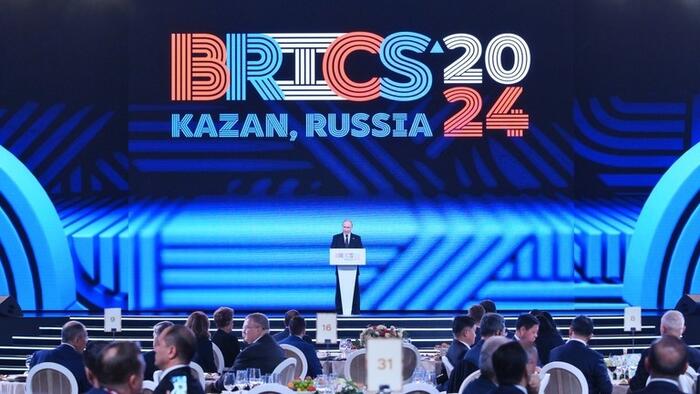The recent Kazan Declaration marks a significant moment in the evolution of BRICS, the group of emerging economies that includes Brazil, Russia, India, China, and South Africa, now expanded to include new members. This declaration, comprising 134 paragraphs, stands out as the most comprehensive document produced by BRICS to date, reflecting a growing depth in the group’s engagement with various international issues. Following a pattern established at previous summits—94 paragraphs in Johannesburg in August 2023 and 75 in Beijing in July 2022—the Kazan Declaration indicates a broader focus and a more substantive engagement among member states. It is divided into four sections addressing multilateralism, security, financial cooperation, and humanitarian exchanges, aligning with the priorities set by Russia during its presidency of BRICS.
A unique feature of this declaration is its detailed articulation of BRICS’ collective understanding of the current global landscape and its vision for a new world order. While it does not outline specific timelines or roadmaps, it identifies important objectives for forthcoming years. The document represents the cumulative work of extensive discussions involving experts, diplomats, and officials from member states, culminating in a carefully negotiated text that suggests a concerted effort to achieve a balance between security and development agendas. This multitasking approach positions BRICS as a testing ground for innovative models of multilateral cooperation, moving away from a narrow focus on trade among its members and expanding its influence on various global governance issues.
The declaration navigates the complexities of reforming existing international economic institutions while creating alternative structures. Members express their commitment to both influencing institutions like the IMF and the World Bank and advancing their own initiatives through platforms like the New Development Bank (NDB). This dual approach highlights the group’s intention to reduce reliance on traditional, Western-centric frameworks, reflecting the geopolitical realities faced by many member countries now facing sanctions from Western nations. By supporting trade liberalization among themselves while also advocating for less restrictive practices in the global economy, such as addressing unilateral sanctions, BRICS aims to foster a more equitable international economic environment.
Security concerns dominate the declaration, reflecting the sensitive nature of international relations among member states. The document addresses various conflicts, including the situation in Ukraine and issues relating to Gaza and Syria. Interestingly, it strives to find common ground amidst differing national perspectives, showcasing the group’s diplomatic prowess in balancing divergent interests. The text’s diplomatic language around contentious issues indicates a careful acknowledgment of members’ stances while promoting dialogue and resolution through peaceful means. The document’s careful framing of sensitive topics underscores the complexities of collective action within a diverse group of nations that may diverge in their geopolitical priorities.
Looking ahead, certain initiatives proposed in the declaration, such as leveraging blockchain technology for currency transactions and enhancing logistical infrastructure among member countries, warrant further exploration at expert levels. BRICS seeks a pragmatic approach, targeting feasible projects that could easily garner consensus among members, like establishing a grain exchange or actively engaging in energy market management. These initiatives reflect a realistic understanding of each member’s capabilities, aiming for cooperative solutions without stepping into the fraught waters of more divisive reform proposals or confrontational positions against Western policies.
Ultimately, the Kazan Declaration signals BRICS’ readiness to assert itself more profoundly in global governance. It neither seeks to become an anti-Western bloc nor position itself as a rival to Western institutions like a G7 equivalent. Through careful framing of its goals, BRICS emerges as a key player advocating for the interests of the Global South. The group’s diverse membership and the absence of a singular dominant leader necessitates a collaborative effort that respects individual member priorities while collectively striving for a more inclusive world order. The declaration, despite critiques of being too ambiguous, showcases the potential for cooperative advancement and sets the stage for the 17th BRICS Summit in Brazil, where these initiatives are likely to gain further traction and development.

